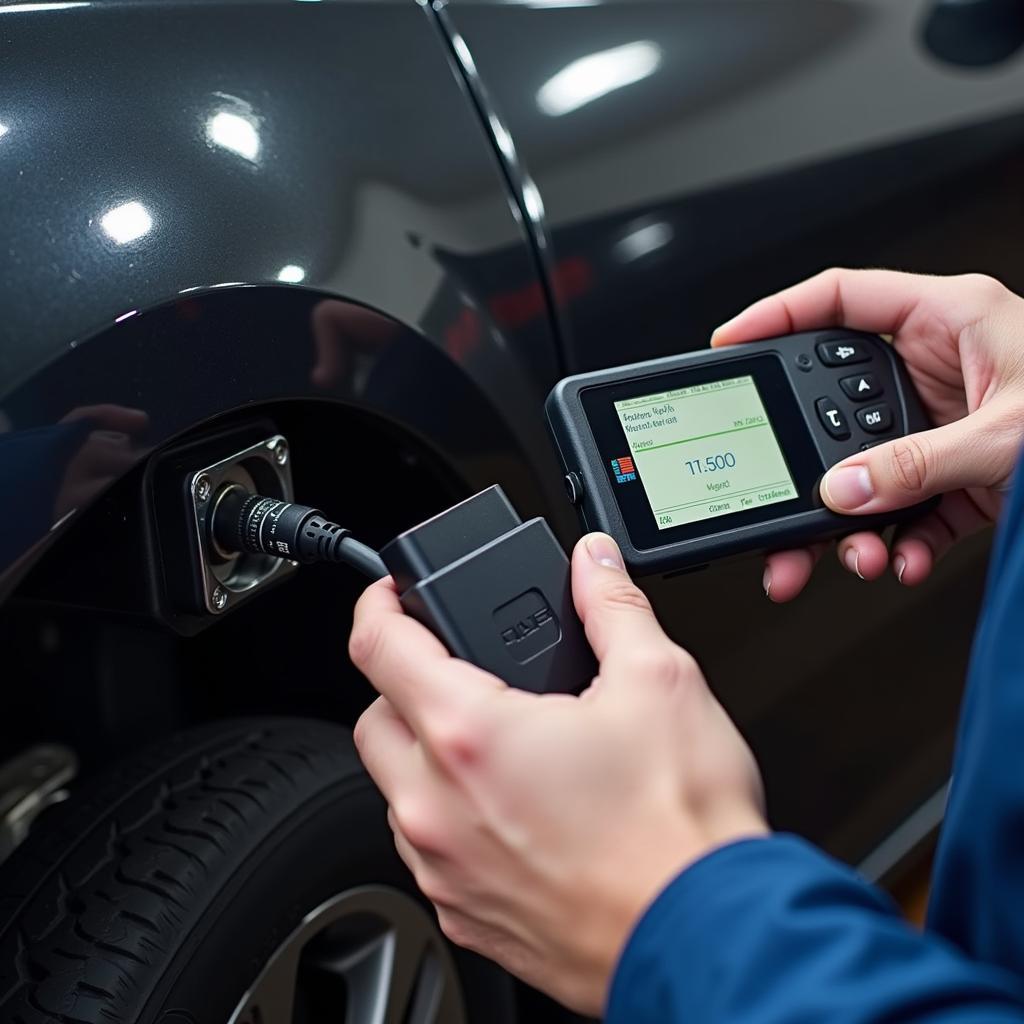How to Know When Your Car Needs Service
Knowing when your car needs service can save you money, prevent breakdowns, and ensure your safety on the road. Ignoring potential problems can lead to costly repairs down the line, so understanding the signs your car is sending is crucial. This article will equip you with the knowledge to recognize when your vehicle requires professional attention.
Recognizing the Warning Signs
Your car communicates with you through various indicators. Learning to interpret these signs is the first step in knowing when your car needs service. Some of the most common signs include unusual noises, fluid leaks, performance issues, and warning lights. Don’t dismiss these signals; they often indicate underlying problems that require professional attention.
how to know if your car needs a service
Unusual Noises
From squealing brakes to a rumbling engine, unusual noises are often the first sign something is amiss. A grinding sound when braking could indicate worn brake pads, while a knocking sound from the engine might signify a more serious internal issue.
- Squealing brakes: Likely indicates worn brake pads and the need for replacement.
- Knocking engine: Could be a sign of serious engine problems and requires immediate attention.
- Whining noises: Might indicate problems with the power steering system or transmission.
Fluid Leaks
Leaks under your car are never a good sign. Different colored fluids can indicate different problems. For instance, brown fluid might be motor oil, while green fluid could be coolant. Any leak should be inspected by a mechanic as soon as possible.
 Different colored car fluid leaks on a driveway indicating potential mechanical problems
Different colored car fluid leaks on a driveway indicating potential mechanical problems
Performance Issues
Changes in your car’s performance can also signal a need for service. Decreased fuel efficiency, difficulty starting, or sluggish acceleration can all be indicators of underlying issues.
- Decreased fuel efficiency: Could indicate a problem with the fuel system, oxygen sensor, or other components.
- Difficulty starting: Might be caused by a failing battery, starter motor, or alternator.
- Sluggish acceleration: Could be a sign of a clogged fuel filter, transmission problems, or other issues.
how to know when my car needs a service
Understanding Your Car’s Maintenance Schedule
Every car comes with a recommended maintenance schedule outlined in the owner’s manual. Following this schedule is crucial for preventative maintenance and can help you avoid costly repairs down the line. Regular oil changes, tire rotations, and fluid checks are essential for keeping your car running smoothly.
“Regular maintenance is like brushing your teeth for your car. It prevents small problems from turning into major headaches,” says Michael Stevens, ASE Certified Master Technician.
Scheduled Maintenance vs. Reactive Repairs
Scheduled maintenance is proactive and helps prevent problems before they occur. Reactive repairs, on the other hand, address issues after they’ve already developed and are often more expensive. Sticking to a maintenance schedule is a cost-effective way to keep your car in optimal condition.
how to know if my car needs a service
The Importance of Diagnostic Technology
Modern cars are equipped with sophisticated computer systems that can pinpoint issues quickly and accurately. Diagnostic tools can identify problems that might not be apparent through visual inspection, saving you time and money.
 Mechanic using a diagnostic tool connected to a car's computer system
Mechanic using a diagnostic tool connected to a car's computer system
“Diagnostic technology allows us to pinpoint the root cause of a problem, ensuring we fix the right issue the first time,” adds Sarah Chen, Automotive Engineer.
how do i know when my car needs a service
Conclusion
Knowing when your car needs service is essential for its longevity, performance, and your safety. By paying attention to the warning signs, understanding your car’s maintenance schedule, and utilizing diagnostic technology, you can keep your vehicle running smoothly for years to come. Don’t ignore the subtle clues your car is giving you – address them promptly to avoid costly repairs and ensure a safe driving experience.
FAQ
- How often should I get my oil changed? Refer to your owner’s manual for specific recommendations, but generally, every 5,000-7,500 miles.
- What does the check engine light mean? It could indicate anything from a loose gas cap to a serious engine problem. Get it checked by a mechanic.
- Is it important to follow the recommended maintenance schedule? Yes, it’s crucial for preventative maintenance and can help avoid costly repairs.
- What should I do if I hear unusual noises coming from my car? Don’t ignore them. Take your car to a mechanic for a diagnosis.
- Can I diagnose car problems myself? While you can identify some issues, it’s best to consult a qualified mechanic for accurate diagnosis and repair.
Need assistance? Contact us via WhatsApp: +1(641)206-8880, Email: [email protected] or visit our office at 456 Oak Avenue, Miami, FL 33101, USA. Our customer service team is available 24/7.

